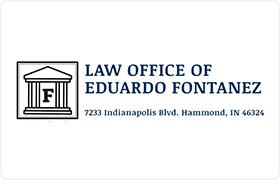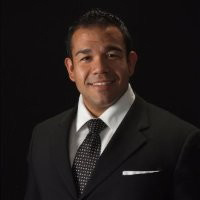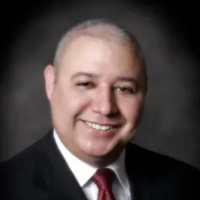Leroy DUI-DWI Lawyer, Indiana
Sponsored Law Firm
-
 x
x

Click For More Info:
-
Law Office of Eduardo Fontanez
7233 Indianapolis Blvd Hammond, IN 46324» view mapCriminal Defense, Divorce & Family Law Former Judge & Former Deputy Prosecutor
I hope we can resolve any issue you may need. Here at the Law Office of Eduardo Fontanez, are focused on providing high-quality service and customer satisfaction.
800-697-7560
Paul Stracci
✓ VERIFIEDCriminal, Accident & Injury, White Collar Crime, DUI-DWI, Felony
Criminal Defense Attorney and Trial Lawyer at Federal and State levels
Paul Stracci is a uniquely experienced criminal trial attorney who has had remarkable success in the courtroom. He successfully defended his first mu... (more)
Alejandro Dominguez
✓ VERIFIEDDUI-DWI, Criminal
I am Alex Dominguez and I provide the highest quality, cost-efficient legal representation possible. I am an experienced trial lawyer representing cli... (more)
Alison Louise Benjamin
DUI-DWI, Personal Injury, Civil & Human Rights, Federal Appellate Practice, Federal
Status: In Good Standing
FREE CONSULTATION
CONTACTMatthew D. LaTulip
DUI-DWI, Constitutional Law, Bad Faith Insurance, Animal Bite
Status: In Good Standing Licensed: 24 Years
James N. Thiros
Child Support, Criminal, DUI-DWI, Divorce, Car Accident
Status: In Good Standing Licensed: 36 Years
Christopher Schmidgall
Bankruptcy & Debt, Criminal, Traffic, DUI-DWI
FREE CONSULTATION
CONTACT Eduardo Fontanez Hammond, IN
Eduardo Fontanez Hammond, IN Practice AreasExpertise
Practice AreasExpertise


